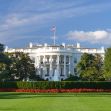If there are any groups of people you should especially not try to censor, they would be bookstore owners, publishers and authors. In Austin a few days ago, these groups filed a federal suit arguing that the Texas “Restricting Explicit and Adult-Designated Educational Resources Act” (H.B. 900) is unconstitutional. The lawsuit seeks to block the new Texas act before it is enacted on September 1.
H.B. 900 mandates bookstores and publishers rate any books they publish or sell on a scale, showing the “level” of sex or gender content in the books. The lawsuit argues this is unconstitutional because the state is demanding that private bookstores and publishers must follow their rules or they will be punished.
The new law mandates that booksellers must label all books as “sexually explicit,” “sexually relevant” or “no rating.” And, the books will be included on a website so that the state can determine if it disagrees with the booksellers' ratings; if it does, the state will change the ratings at its own discretion.
Under federal law, per the First Amendment, the government may not mandate speech from private businesses or individuals.
The plaintiffs, known as ABA, a powerful national and Texas publishing coalition, filed the suit in the US District Court for the Western District of Texas, Austin Division. The ABA is challenging the Texas law that would force booksellers, publishers, and vendors to review and then rate millions of books, both print and digital, plus library materials, for sexual content, if the books are sold to libraries.
H.B. 900 provides a blurred description, however, of the labels mandated by the state, and does not offer any legal process for judicial review.
The law is set to take effect on September 1. Anyone who does not comply with the new sexual content rating law will be barred from doing business with public schools.
The plaintiffs warn that even classics such as Romeo and Juliet and Of Mice and Men could be banned from public schools and libraries. Court documents say the new censorship law is “unconstitutionally” vague and is not only a violation of free speech rights but also will place a damaging strain on booksellers, who are already reeling from the rise of digital books.
Under H.B. 900, rating ”sexually relevant" material that may include sex could impact many texts that are part of the required school curriculum. With a new "sexually relevant" rating, which would cover any mention of sexual relations, this means that clinical health books, historical works, dictionaries, encyclopedias, and even religious texts, would be rated as unsuitable.
The new law also requires all booksellers to rate books they have sold in the past.
The prominence of censorship of books across the United States is steadily growing. Numerous conservative-led states already ban classic novels and other materials from libraries and public schools.
As of today, 32 states have book bans, with the most restrictive laws found in five states including Florida, Missouri, South Carolina, Texas, and Utah, PEN America reports. All told, however, 113 bills to ban books are currently pending across the nation, all in conservative-led states.
In Texas, Governor Gregg Abbott led a successful movement to regulate or ban reading materials. Abbott, who was very pleased with the new censorship law, signed it into law and then said it "gets that trash out of our schools."
In Arkansas last week, a federal judge heard arguments in a lawsuit looking to block a new state law that charges librarians and booksellers with criminal offenses if they provide “harmful” materials to minors.
Book bans are commonplace and show no signs of slowing. PEN reports that from July to December 2022, there were 1,477 cases of books being banned and then removed, up from 1,149 during the six months prior. PEN also said that since 2021, when the organization started tracking book bans, there were over 4,000 cases where books were removed.
PEN also reported that it could not track the many books some states told schools to remove as “offensive” content from their libraries.
The new law offers a shift in tactics by states in the U.S. to remove books from public schools and libraries. Now, the new Texas law is designed to cut off the sale of any books with sexual content, including biology books, etc., before they are sold and delivered to schools and libraries.






